Royal wedding: The UK's rapidly changing mixed-race population
- Published
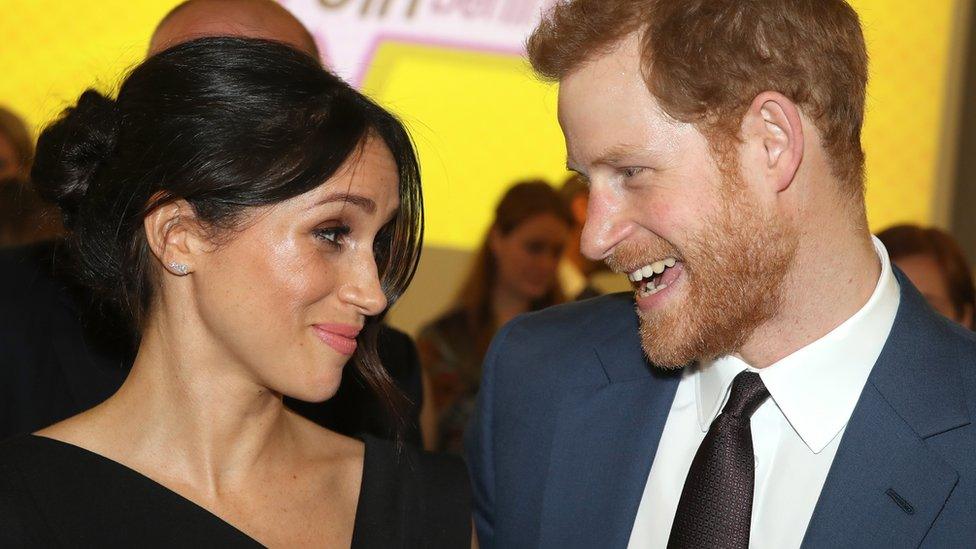
Meghan Markle's marriage to Prince Harry will see her become the first mixed-race member of the Royal Family. How does the wedding reflect wider changes in UK society?
The UK's growing number of people of different ethnic origins is often seen as a sign of a rapidly changing country.
Their experiences can highlight shifting social attitudes and greater integration - or, sometimes, a lack of it.
That an American actress and model born to a white father and a black mother is marrying Prince Harry has been described as a milestone for the Royal Family.
Across UK society as a whole, how do the experiences of other people of dual heritage compare with those from other backgrounds?
How many mixed-race people are there?
One of the most striking things about the mixed-heritage population of the UK is that while we know it has grown rapidly, we don't know how large it actually is.
The most reliable figures come from the census and those who report their ethnic group as one of four categories: white and black Caribbean; white and black African; white and Asian; other mixed
These categories were introduced in 2001, when 1.3% of the population of England and Wales used them. By the time of the 2011 census, this had grown to 2.3%.
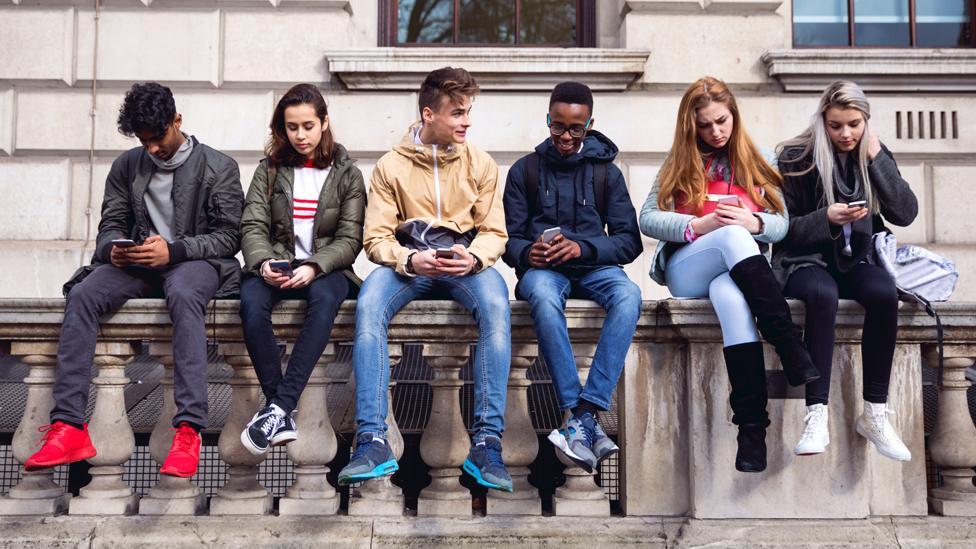
This substantial increase was particularly apparent among children, as more were born to parents of different ethnic groups. For example, the number of dual heritage children up to four years old rose from 116,000 in 2001, to 220,000 in 2011.
There has also been an increase in the adult dual-heritage population. This is because some immigrants are of mixed ethnicity and some people change how they describe their ethnicity over time.
In the UK, population projections suggest that the mixed groups are the fastest growing ethnic groups. Between 2001 and 2011, all four groups included in the census grew substantially.
For example, the number of people describing themselves as white and black African doubled from 0.15% to 0.3% of the population over this period.

But the census undercounts those who might be considered to be of mixed ethnicity if we look at their parents' ethnic groups.
Only 30% of adults with parents of different ethnicities describe themselves as having mixed heritage, external, the UK Household Longitudinal Study suggests.
This reflects the fact that people are free to identify themselves as they wish and may not feel that a particular category does - or should - apply to them.
Indeed, Ms Markle has herself identified the problem of people wanting to ask her the question "What are you?" and, in a 2016 article for Elle, recalled being confused by an ethnicity question on a classroom census, external.
She described herself as biracial and spoke of how she had come to "voice my pride in being a strong, confident mixed-race woman".
Education, employment and earnings
The overwhelmingly youthful mixed-race population of the UK is performing well in school, external.
At GCSE level, mixed-ethnicity children are on a par with white British children: with 63% of both groups getting A*-C in English and maths.
They also performed relatively well on the English Baccalaureate (EBacc), with 26.7% achieving it, compared with 23.7% of white British pupils.
However, they performed less well than some minority groups - for example Chinese pupils, of whom 82.8% achieved A*-C in English and Maths and 52% achieved the EBacc.


When it comes to employment, the picture is not quite as good.
Among men and women aged 25-49, the mixed-race population had an employment rate of 75% for men and 68% for women, compared with 85% and 75% across all ethnic groups, at the time of the 2011 Census.
Unemployment was nearly 10% for men and 7.5% for women, compared with 6% and 4.5% across all ethnic groups.
"It's like when Obama became president": BBC News talks to black Britons about the 'Meghan effect'
The picture of work among the mixed-ethnicity population for this age group is comparable to that experienced by other ethnic minority groups. Among the complex reasons explaining these differences in employment levels is possible discrimination among some employers.
How far this will change when dual-heritage children currently at school reach adulthood remains to be seen.
Poverty among mixed-race households is also high, according to 2016-17 government figures on households below average income, external.
It shows that families headed by someone of mixed ethnicity have higher poverty rates (20%) than across households as a whole (16%).
Nearly one in four mixed-race families is in the bottom fifth for income.
Among the reasons for the greater rates of poverty is the lower levels of employment among the group.
Changing attitudes
Despite the financial challenges facing many mixed-race people, there are signs that the UK is moving towards a more integrated society in other ways.
Analysis of the British Social Attitudes Survey, external, which acts as a barometer of changing national attitudes, has shown increasing openness to inter-ethnic partnerships.
For example, the proportion of white respondents who say they would mind "a little" or "a lot" if a close relative married someone who was black or Asian fell from more than 50% in 1989 to about 25% in 2013.
While the official number of mixed-race people remains relatively small as a proportion of the UK's total population, it is significant that it has increased rapidly over the past decades.
It is expected that it will continue to grow.
This population shift may be taken as an indicator of a more integrated and cosmopolitan society.
But the inequalities mixed-race people face in terms of employment and incomes shows that ethnic origins continue to shape people's lives and opportunities.

About this piece
This analysis piece was commissioned by the BBC from an expert working for an outside organisation.
Prof Lucinda Platt, external is professor of social policy and sociology at the LSE.
Follow her department's work at @lsesocialpolicy, external.

Edited by Duncan Walker
- Published30 December 2017
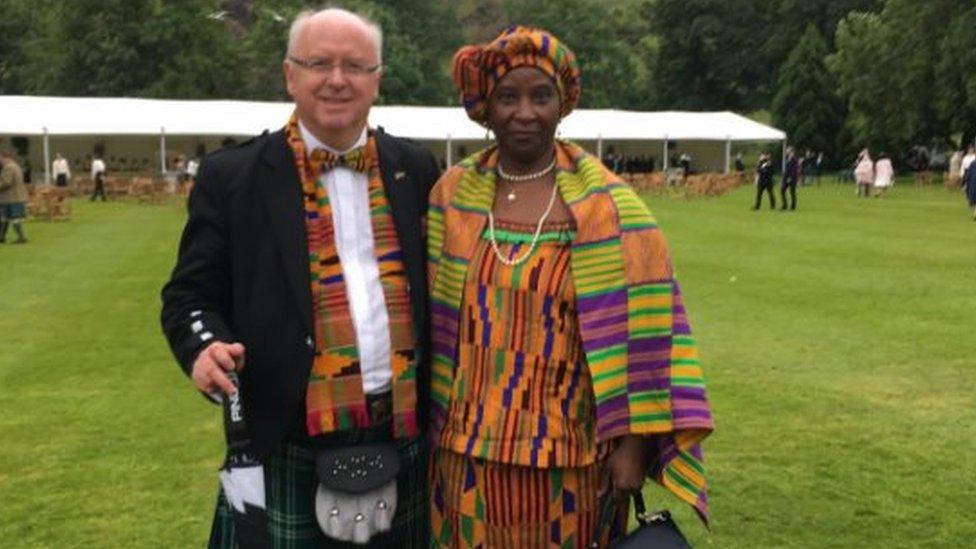
- Published27 November 2017

- Published10 October 2017
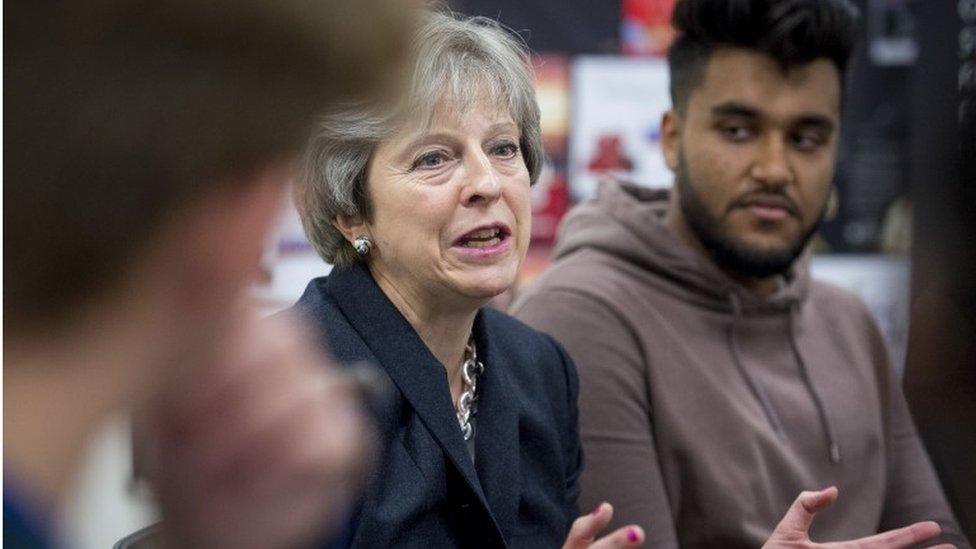
- Published10 October 2017
- Published1 March 2017
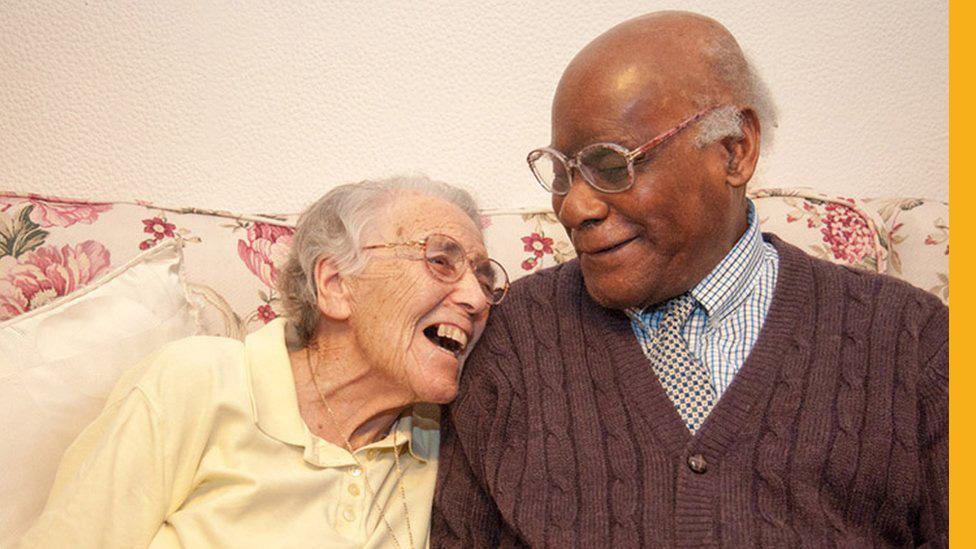
- Published6 October 2011